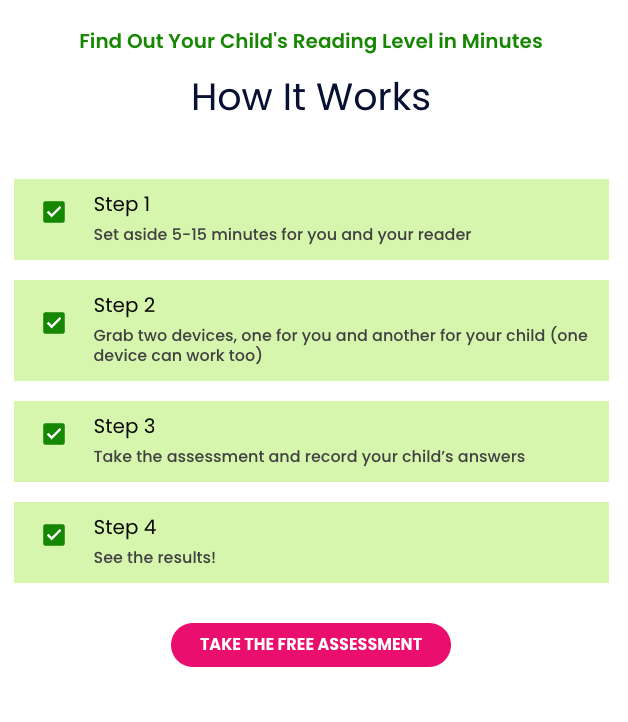
🐴 How savvy parents are tutoring their kids
🐴 How savvy parents are tutoring their kids
🐴 How savvy parents are tutoring their kids
If you enjoy this edition, forward this email to a friend! First time reading? Subscribe and learn more at OpenEd.co.
IN THIS EDITION
🍎 The tutoring myth that's keeping kids behind
🍎 Why some "reading problems" need an eye doctor, not a reading specialist
🍎 Three new weapons for your reading arsenal
💡 1 THOUGHT
THE 'LESS IS MORE' APPROACH FOR READING SUCCESS
We've been overdosing kids on tutoring.
Traditional wisdom says struggling readers need TONS of help—longer sessions, extra hours, weekend work. But what if small doses of the perfect 'medicine' is all they need?
Most reading tutor solutions available to families only offer 60-minute sessions.
But Tony Mickelsen from Savvy Learning makes a point that seems obvious once it’s said out loud:
"What child is going to have fun learning to read for 60 minutes? That's tough for me as an adult."
The solution isn't long tutoring sessions—it's shorter, more frequent tutoring sessions. Like medicine, there's an optimal amount that produces maximum results. For reading, that dose is surprisingly small: 25 minutes, four times weekly.
"At the end of a session with Savvy, the kids are hyped," Tony reports. "They want to come back. In part, because the shorter sessions aren't leaving them burned out."
The key word here is "dosage," not "duration." It's about consistency and engagement, not endurance.
📊 2 TRENDS
1. THE ADULT LITERACY CRISIS CREATES GENERATIONAL CYCLES - The reading crisis doesn't end at graduation. According to the U.S. Department of Education, 54% of American adults read below a 6th-grade level.
This creates a vicious cycle: Parents who struggle with reading often can't help with homework, skip bedtime stories, and pass on reading anxiety. The National Assessment of Educational Progress shows 66% of 4th graders now read below proficiency—and 70% never catch up without intervention.
The pattern repeats: Parent avoids reading → Child misses early literacy exposure → Child struggles in school → Becomes an adult who avoids reading. Breaking this cycle requires treating family literacy as interconnected, not isolated problems.
2. HIGH-DOSAGE TUTORING - Harvard economist Roland Fryer's award-winning research on high-dosage tutoring found that 130+ hours of small-group tutoring significantly improved outcomes—but only when delivered in the right "dosage."
The key finding: It's not about total hours but frequency and engagement. Schools implementing Fryer's model—high-dosage tutoring—saw gains equivalent to eliminating the racial achievement gap in three years.
🔨 3 TOOLS
1. Savvy Learning Free Reading Assessment - Know Your Child's Level in 15 Minutes
Before you can fix a problem, you need to know exactly what you're dealing with. Savvy's free assessment takes just 15 minutes and gives you concrete data on your child's reading level.

Designed by experts using Science of Reading principles, it evaluates key skills and provides actionable insights. You'll need two devices (or can share one), and your child reads while you record responses. Parents are often surprised by the results—sometimes relieved, always with a clear action plan.
Best part for OpenEd families: Once you know where your child stands, you can access Savvy's high-dosage tutoring (25 min, 4x weekly) using education funds with zero out-of-pocket costs. This is the tool we wish every parent had access to.
2. Reading Eggs - Self-paced phonics practice known to hold kids' attention, through gamification and rewards. Perfect supplement between tutoring sessions. Ages 2-13.
3. Learning Ally - Not your average audiobook app. Learning Ally provides human-narrated textbooks and literature specifically for students with dyslexia, blindness, or other reading barriers. Students can follow along with highlighted text while listening. $135/year for families (schools get discounts) gets you access to over 80,000 titles
For 10+ more reading resources our families swear by, check out the full podcast and blog post →
– Charlie (the OpenEd newsletter guy)
Subscribe to The OpenEd Daily
Join 17,000+ families receiving curated content to support personalized learning, every school day.
.webp)





